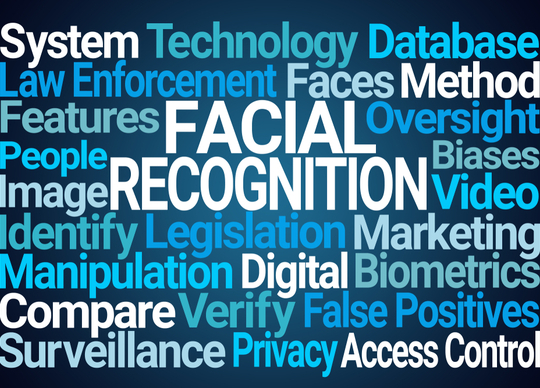
The UTS Centre for Social Justice & Inclusion is working on a project to outline a model law for facial recognition technology in Australia.
Led by UTS Industry Professor – Responsible Technology, Edward Santow, this project is part of a major UTS initiative to build Australia’s strategic capability in artificial intelligence (AI).
This project focuses on facial recognition. Not long ago, this technology was science fiction; now it seems to be everywhere. We rely on facial recognition to unlock our smartphones and other devices, and to verify who we are when we travel from one country to another.
Increasingly, facial recognition is also being used to make major, consequential decisions: to identify people suspected of committing crimes; to monitor people in COVID-19 quarantine. It’s even being used to try to assess people’s mood, their level of responsibility and many other characteristics – with varying levels of accuracy.
A need for reform
The United Nations, the Australian Human Rights Commission, and many civil society organisations have argued that better human rights safeguards are needed for the development and use of facial recognition technology.
Research has shown this technology tends to be far less accurate in identifying people with dark skin, women and people with a physical disability. There is a risk that if we don’t make careful decisions about how and when to use facial recognition, we could slide towards mass surveillance.
A growing number of jurisdictions, including San Francisco, are responding with new laws that restrict the development and use of facial recognition and other biometric technology. Companies like Amazon, Microsoft, Google and Facebook have announced that they are pulling back from facial recognition.
Closer to home, Australia’s privacy regulator has expressed concern about the privacy implications of some uses of facial recognition. The Australian Human Rights Commission has urged reform to encourage positive innovation using this technology, and to crackdown on its misuse and overuse.
The centre’s Facial Recognition Model Law Project
In this project, the UTS Centre for Social Justice & Inclusion will assess a growing number of laws from around the world, which seek to regulate facial recognition. The project will also consider expert and community views, through qualitative research and by drawing on recent government-led public consultation processes.
The project aims to propose reform that will encourage innovation for public benefit, while setting clear legal rules that prohibit harmful activity in this area. A report outlining a model law on facial recognition technology will be released in mid-2022.






